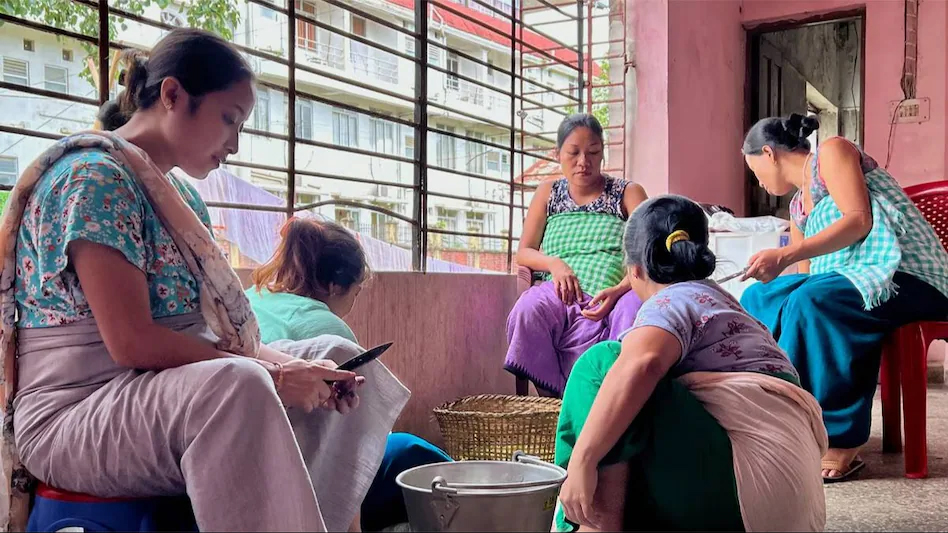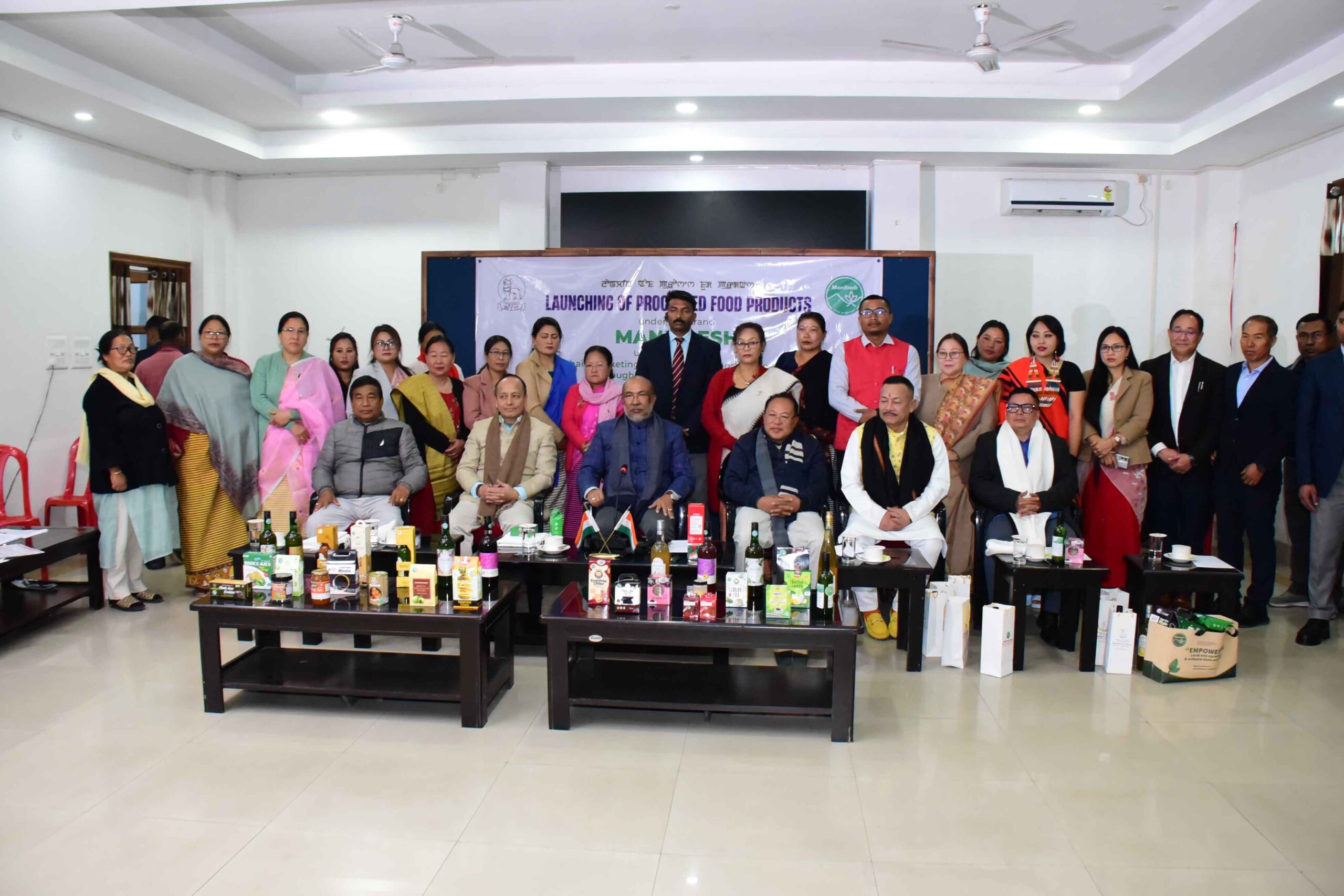In the wake of the recent violence that has displaced thousands of families in Manipur, self-help groups are stepping up to provide vital skill-based training to women, offering them a pathway to economic independence and self-sustainability
 KRC TIMES Manipur Bureau
KRC TIMES Manipur Bureau

In the wake of the recent violence that has displaced thousands of families in Manipur, self-help groups are stepping up to provide vital skill-based training to women, offering them a pathway to economic independence and self-sustainability.
Kongkham Monica, a mother of three hailing from the Serou area and currently residing at the Wangkhei Relief Camp in Imphal East district, shared her story of empowerment through skill training. “We have been staying at this camp since our homes were burned in May, relying entirely on the donations of others. But now, thanks to the skill training provided by a women’s self-help group, we have learned to make disinfectants, incense sticks, and candles,” she said.
The training programs, conducted by organizations like the Kangleipak Women Multipurpose Cooperative Society Ltd, have equipped displaced women with the know-how to produce these items, along with packaging techniques. Local volunteers assist by providing raw materials, enabling the women to kickstart their entrepreneurial endeavors.
Monica emphasized that the profits from selling these products are retained by the displaced persons, providing them with a source of income amid adversity. “The skill training program has provided us with a means to earn a livelihood. Although our situation remains challenging, we are striving to improve our circumstances,” she expressed, highlighting the resilience within the community.
Echoing this sentiment, Samom Beerjurekha, trustee of ‘Eta: North East Women’s Network,’ emphasized the importance of economic sustainability for displaced victims. “We conducted surveys in various relief camps to identify skills and opportunities for these women. Our voluntary efforts aim to empower them economically,” she explained.
Through initiatives like purchasing looms and distributing them to beneficiaries, organizations like Eta are working towards long-term empowerment and women’s economic independence.
Local volunteers, such as Babyna Maibam, underscored the significance of skill training in offering hope to internally displaced women. “The feasibility of returning to their native places is low, but these programs offer a new ray of hope. These women can utilize their newfound skills to secure a livelihood in the future,” Maibam stated, emphasizing the transformative impact of these initiatives.
Currently, over 50,000 internally displaced people are residing in relief centers across Manipur, underscoring the urgent need for sustainable solutions amidst ongoing ethnic strife.
The violence, which erupted last year, has claimed the lives of at least 219 individuals, stemming from tensions between the Meitei community and tribal groups over demands for Scheduled Tribe (ST) status.






